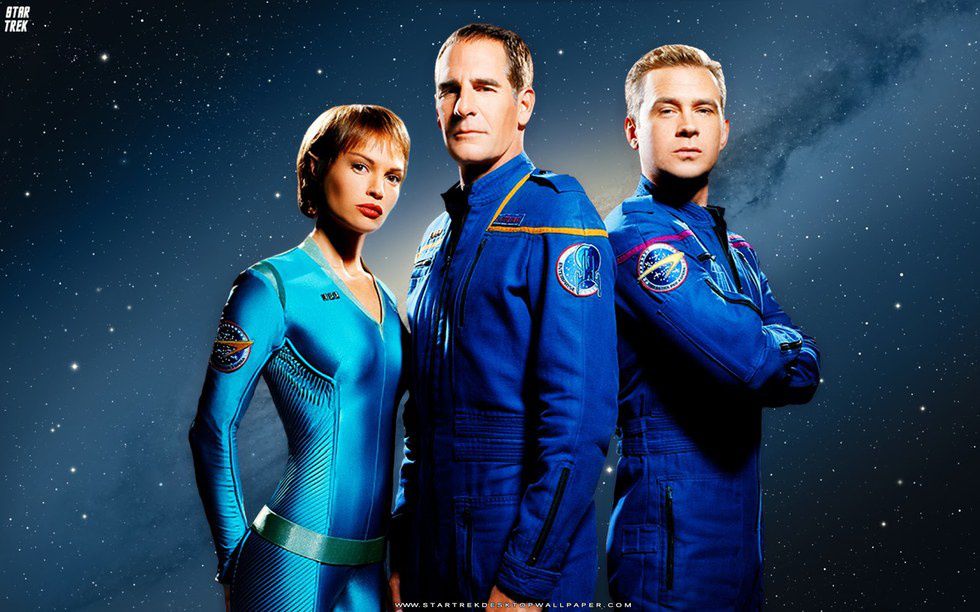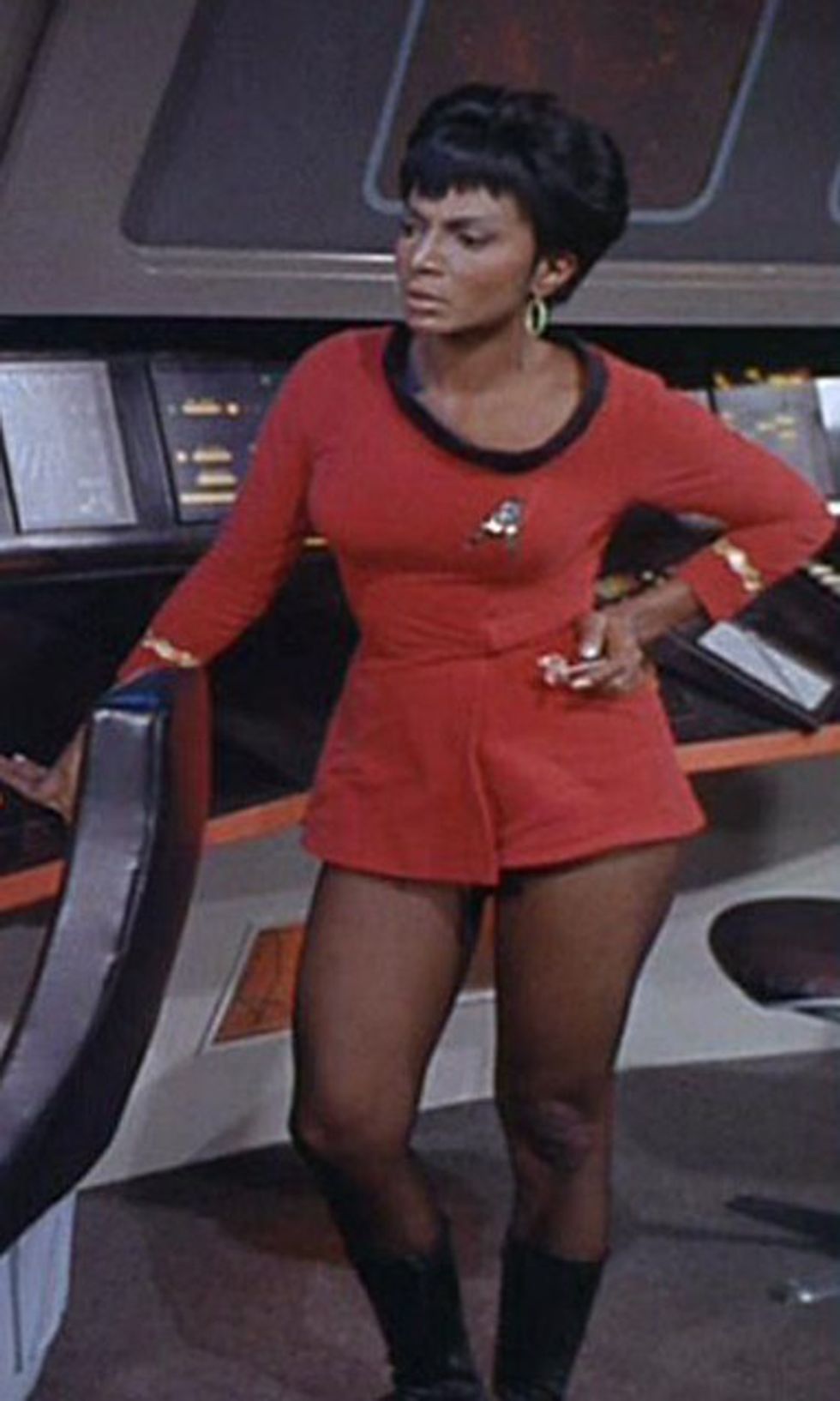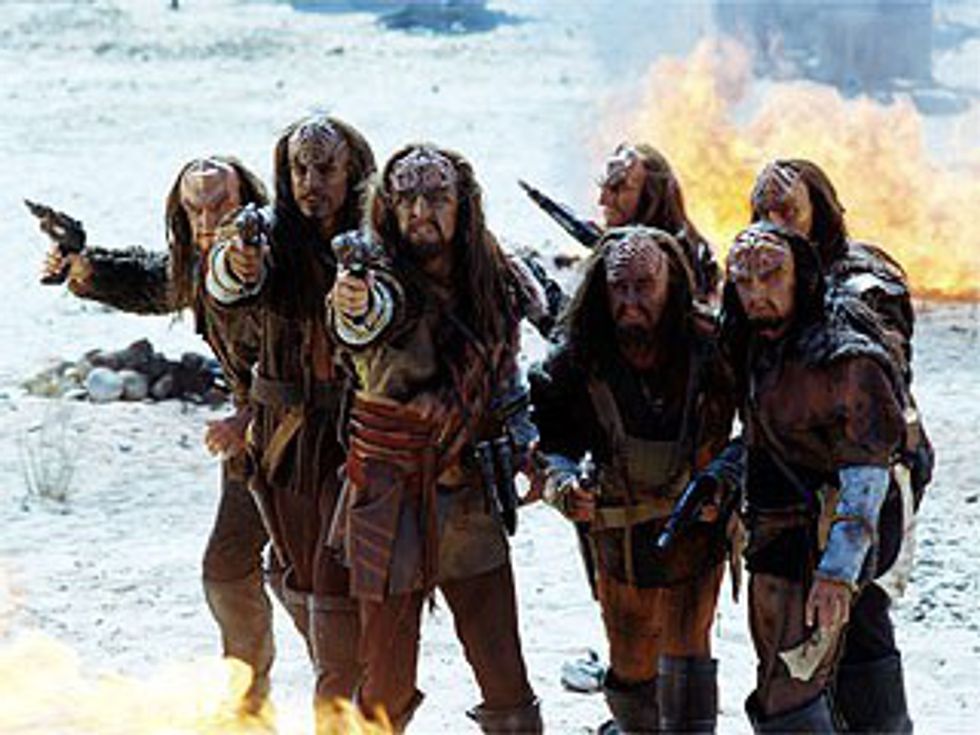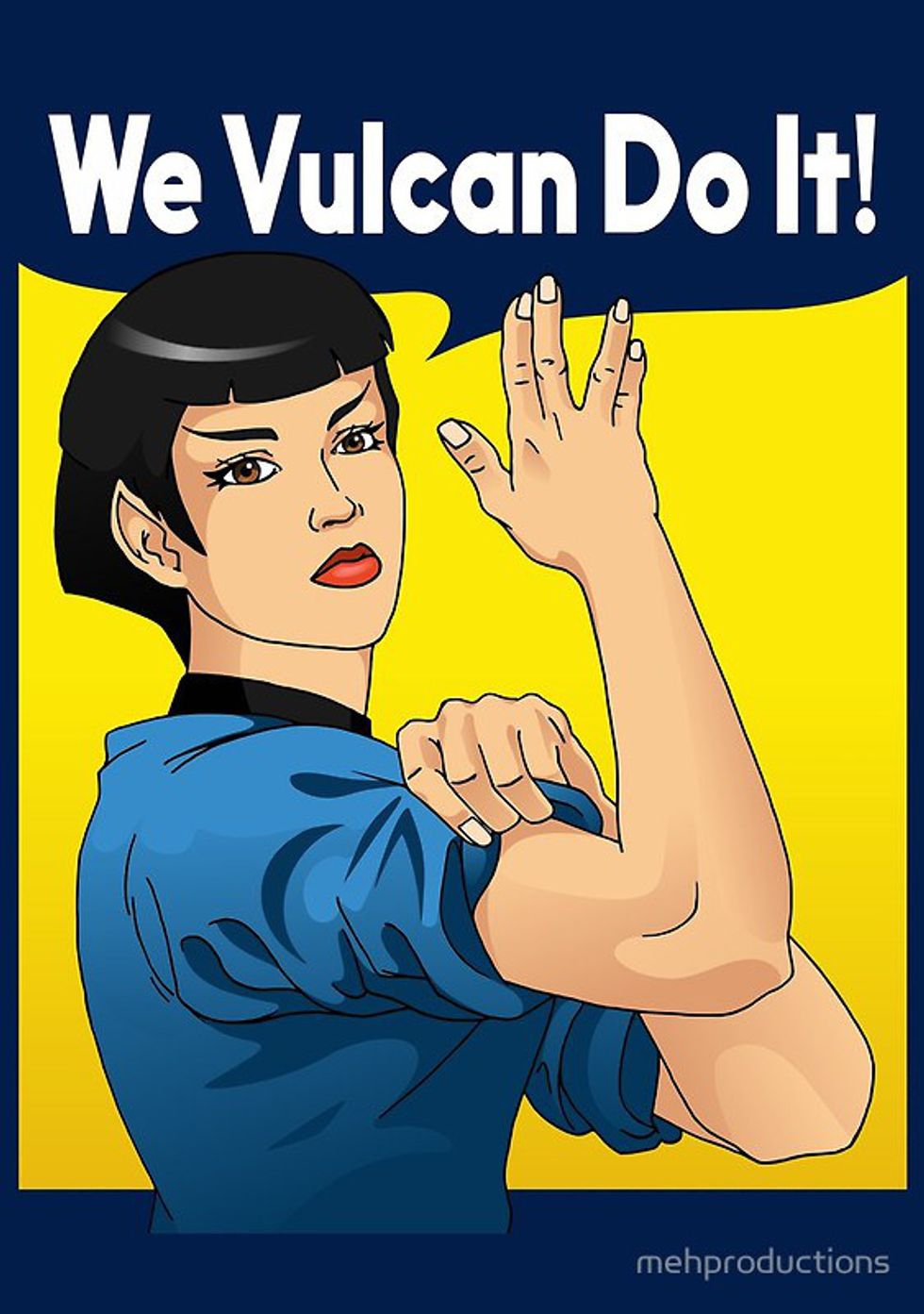Growing up, I loved watching Star Trek with my dad and imagining myself in such a great, egalitarian, and utopian world. I dreamed of going to The Academy and joining Starfleet, maybe becoming a science officer, or perhaps specializing in xenolinguistics like Hoshi and Uhura. It wasn’t until I grew up that I began to notice how problematic Star Trek’s portrayal of women really is, and I’m not sure if I’d want to enlist in Starfleet anymore.
Yes, women are on the bridge and have authoritative roles. In Star Trek: Enterprise, T’pol is First Officer; in Star Trek: Voyager, Janeway is the captain. However, in the entirety of Star Trek, women are not treated equally compared to the men. The women are often donned in scantily clad attire, unlike their male counterparts. Uhura wore short dresses, T’pol wore a slick and tight jumpsuit, while most other male officers wore a generic uniform. These women aren’t simply appreciated on their own, as they are almost always cast as having love interests with other commanding officers at some point in the series.
Star Trek: Enterprise was particularly hyper-sexualized, probably to appeal to a male audience. Even though T’pol was the first officer, she was cast having as having a possible love connection with the captain of the ship and then the chief of engineering. She was often discriminated against as well, particularly at the start of the series, every time she used her authoritative position against a man.
When there was a female captain of a ship in Star Trek: Enterprise, The Columbia, it was announced that Hernandez had a romance with Archer, captain of The Enterprise, and that it ceased because she was his student. This same scenario of female students romantically involved with current or former teachers appears in the newer Star Trek movie, with Spock and Uhura.
In the first episode of Star Trek, Captain Pike noted that he just “can't get used to having a woman on the bridge.” How are these characters from this great, advanced society if they can’t “get used” to a woman in a room of command? The starships are also feminized; the Enterprise referred to ‘she/her,’ which the captains (typically men) dominate and control.
While it can be argued that the older episodes are sexist due to the time they were written and filmed, I do not think that justification is valid. The whole premise of Star Trek is to portray an advanced, egalitarian society that has rid itself of poverty, hunger, and bigotry, yet this is hypocritical as the show couldn’t even portray women in this manner. I would also argue that as time has gone on with the newer Star Trek movies, beginning in 2009, these issues of sexism remain.
Star Trek: The Next Generation (TNG) appears to have strong women such as Dr. Beverly Crusher and Deanna Troi, yet both were cast with having love interests with the captain or other commanding officers. Later in TNG, the women wore pants instead of skirts or dresses, which was an improvement. Yet in the newer Star Trek movies, filmed over two decades later, the female cadets are back to wearing short dresses, which wouldn’t be practical for the jobs they held. These characters were also cast in more nurturing positions, as Dr. Crusher was a medical doctor and Troi was the ship’s counselor.
Continuing with TNG, Tasha Yar appeared to be the most can-do woman in her position as Chief of Security, but she did not appear in the series beyond season one (when Worf temporarily took over her position). Denise Crosby, the actress who played Yar, stated in an interview: "I think they would have been very happy for me to wear really tight outfits and heels and stick my tits out — believe me, they suggested it, those very words were actually used.”
The portrayal of women isn’t the sole out of place factor in Star Trek. Racism and xenophobia are still an issue, expanding to other species across other Star Systems. Vulcans are viewed negatively for their culture based in logic, most evident in the discrimination faced by T’pol (who, yes, was also a woman) and Spock to some degree. Often times the more “primal” peoples are cast as having darker skin: Klingons are cast as being aggressive and violent, the Ferengi as greedy and unintelligent, the Ligonians as overly proud yet primal, and the Kazon as being warrior-like.
TNG tried to address gender, yet avoided homosexuality. The topic of gender was in an episode through an androgynous race called the J’naii. The J'naii had evolved to no longer have gender. Riker fell in love with a J'naii named Soren, who claimed she felt and wanted to identify as a woman. Star Trek cast a woman to play the role of Soren, as she was supposed to be Riker’s love interest.
Star Trek has tried to be progressive in some respects, and I appreciate that. The original series featured TV’s first interracial kiss; Picard used philosophy in response to the mission’s dilemmas; once, for a fleeting moment, there was a male crew member wearing a skirt; the series did make an effort to establish a multiracial cast; women do at times wear a unisex uniform that matches their male counterparts. “Where no man has gone before” has changed to “where no one has gone before” (after flip-flopping between the original series, TNG, and Enterprise). But I think its failures are enough to write this article.
Star Trek has so much potential. The premise and ethics presented are thought-provoking and often inspiring, but especially as time is moving forward, I have yet to see significant changes in the portrayal of woman, how race is incorporated, and identities that aren’t normative. The series itself contradicts its original and overarching premise. I keep hoping that with time Star Trek will realize its hypocrisy and will change, but I am still waiting.













































